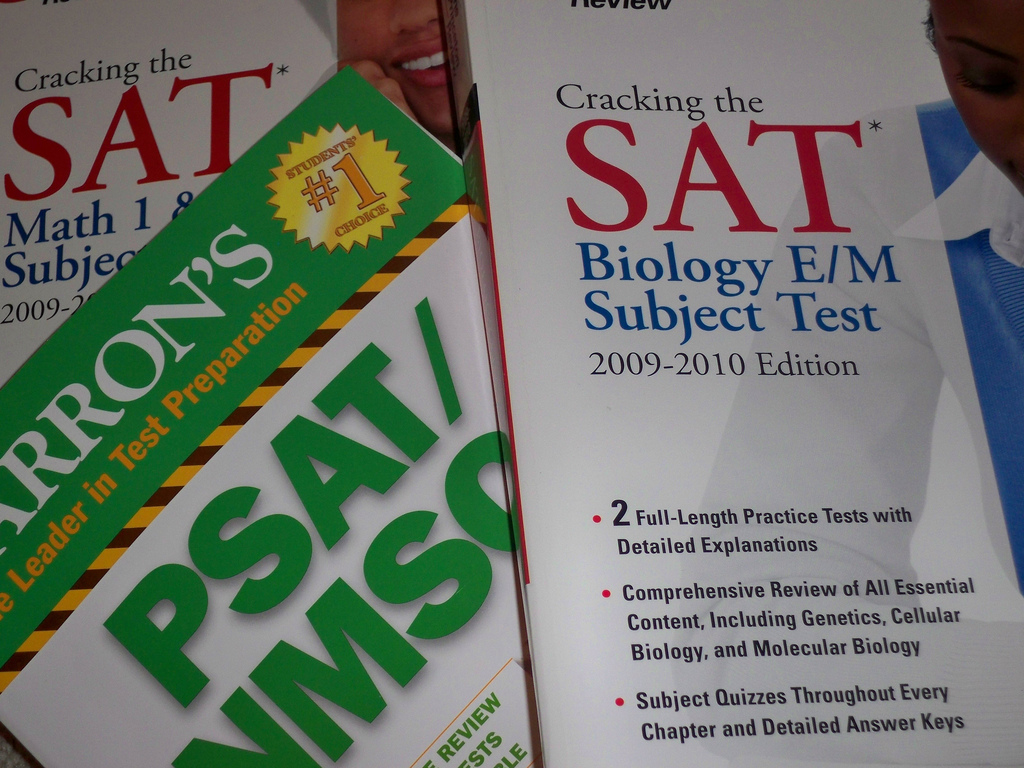College-bound students and their parents are well aware that high scores on the SAT or ACT are of interest not only to college admission offices, but also to financial aid and scholarship programs. As a result, American families annually spend millions of dollars on prep courses hoping to boost scores.
From simple practice testing to multi-week “college admission prep” programs at major universities, the range of test prep options out there is incredibly diverse. Debate remains about whether test prep in general is “worth it.” But many educators – as well as students themselves – feel that some degree of preparation is important, if only to build familiarity with the standardized test format, which is very different from the testing kids encounter elsewhere, and presents different challenges.
Financial realities and time constraints limit the level of test prep many students can engage in. A popular “do-it-yourself prep course” that many students and parents recommend is to combine practice testing with tutoring. For example, Xiggi’s SAT prep advice advocates this kind of low-cost, straightforward approach.
The idea behind these common-sense techniques is that the more one practices, the more one improves. Xiggi refers to the SAT as “an animal” that test-takers should approach with respect, having learned as much as possible about its behavior and idiosyncrasies.
A minority of students might only need to review a past test or two to get a feel for the way different types of questions are presented and worded. But most students are likely to benefit from significant practice. Building confidence, time management skills, and familiarity with question types are key steps in this “animal taming” process. The overall goal is to gain knowledge of the SAT test itself. Students who can quickly assess questions and recognize familiar patterns can solve problems faster and with greater confidence.
The role of a tutor in this context is to help keep students motivated and engaged to support effective, focused study. (It’s often a challenge for parents to fill this role.) A tutor can also help strengthen subject knowledge or test-taking skills in weak areas – provided he or she knows what those weak areas are.
Diagnostic assessment reports and learning analytics, such as those offered by Socrato, enable tutors to leverage practice testing to precisely analyze a learner’s strengths and weaknesses, score tests by subject area, skills tested, question format and/or difficulty level, generate rich performance histories for motivational purposes, and much more.
With these learning analytics capabilities, tutors can support a single student or a group of students to create individualized test prep and skills assessment programs hone strengths and address weaknesses quickly and effectively.
On top of that, tutoring can offer so much more than just test preparation or even subject knowledge. For example, time with a tutor can help kids develop independent, self-motivated, confident learning styles that will enrich not just their college careers but their entire life path.
What’s the most cost- and time-effective way to boost knowledge, skills, confidence and SAT/ACT scores? Many tutors and other educators, as well as parents and students, may have differing perspectives. Combining proven, affordable practice test-taking with learning analytics to guide targeted skill-building is likely to be effective for many students.
Featured image courtesy of BCPrince.











Hi,
Friends, It post offers a superior tutoring for your child.
If we talk about group study as article is indicating that participation of friends encourage discussion. On the other hand if using online way to study it gives virtual discussions.
Math Tutors Toronto